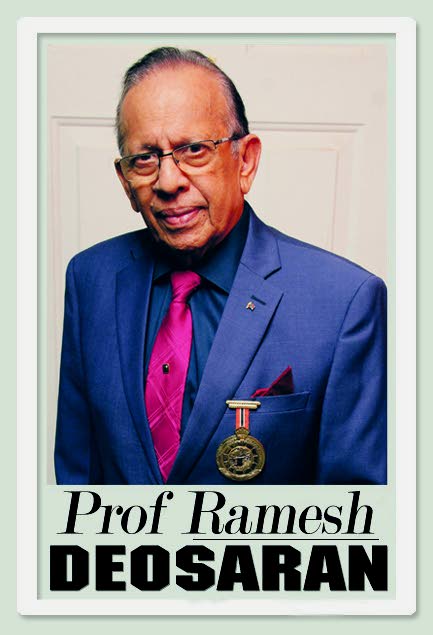Crime, politics and 'squat lords'

Squatting and poverty are obviously heading for a special place alongside crime on political platforms.
Housing and Urban Development Minister Camille Robinson-Regis expressed the government’s determination to stop “the squatter explosion,” despite squatter protests and opposition criticisms over the state's handling of squatters,
“We have seen an explosion of squatting and even people who have decided they can sell state lands. They are squat lords. They don’t own the land but they are selling it,” she said.
This squatting controversy was energised by news headlines such as “Mothers, children being put out,” “Squatters plead for mercy,” “Squatters upset as Cummings offers no help,” and “Young mother of four fears homelessness.”
While some called for “compassion,” many on social media supported the position of law and order.
Hear this from Dennis Harry: “Some people have no choice in life but to squat, d price of things.” And from Alexander Marcus King: “Demolish it as soon as it starts to build and lock them up because they are breaking the law.”
Another big job for incoming PM Stuart Young.
This complicated squatting matter involves the law, sociology, politics, psychology, crime and of course, economics. Each element needs special but coordinated treatment.
According to the law, squatting is illegal. Sociology because squatting involves poor people. Politics because squatters and their supporters have votes which each party needs.
Psychology because of early hardships which drive people into squatting dependency and an absence of the will for self-reliance.
Crime because squatting communities gradually become havens for illegal drugs, prostitution, delinquency and unemployment if the required safety and physical infrastructure are not properly put in place. Ask the police.
Economics because it costs a lot of taxpayers’ money for alternative housing and infrastructure.
Squatting recently erupted into a political controversy again from the demolition of 12 “illegally constructed houses” in Arima by the Land Settlement Agency (LSA) and the Commissioner of State Lands. One squatter threatened court action. The squatting debate got politically intensified when Mayaro MP Rushton Paray extensively criticised the government’s mismanagement of squatters.
Calling for “a pause” in the evictions, Paray proposed several remedial policy routes including “health and safety issues,” “economic empowerment of squatters” and “proactive action.”
Former UNC housing Minister Dr Roodal Moonilal warned that the evicted people “would be placed on the streets vulnerable to crime and at risk of further social challenges.”
Not taking this lightly, Minister Robinson-Regis’ full-page newspaper statement responded to Paray’s criticisms while explaining the method of allocating HDC houses and the extensive grants and subsidised housing programmes for poor people. She promised “500 houses” soon coming for displaced squatters – this, a few months before the elections.
Now this squatting issue is also connected to the destruction of the country’s biodiversity. In fact, as far back as June 2021, the
Environmental Management Authority (EMA) said: “The EMA is very concerned about recent reports of illegal land occupation (land grabbing) in south Trinidad, in particular the Cedros area where the virgin forest is being illegally cleared” with devastating results. “Fifty to sixty per cent of virgin forests already destroyed,” said EMA. Any action taken?
In that same year, 2021, San Fernando East MP Brian Manning faced his own protracted problems with squatters in St Madeleine and Victoria Village. Equally bad was former agriculture minister Clarence Rambharat’s written allegations in April 2018 to Dr Rowley about fraudulent land deals through the Commissioner of State Lands office.
In August 2018, then planning and development minister Robinson-Regis expressed “serious concern over the illegal occupation of forest spaces and squatting. She said: “I wish to assure the national community that we will not condone the reckless action of a few to the detriment of many.” Hmm.
Further back in March 2014, Sangre Grande Regional Corporation declared “war against squatters,” with its then chairman Terry Rondon promising to deal with “more than 200 illegal squatters” and the squat lords.
Finally, given all the political grand charge and ambivalence over the years on this haunting squatting issue, it is in the public interest for all political parties to announce their relevant policies during the election campaign. And let the voters judge.

Comments
"Crime, politics and ‘squat lords’"